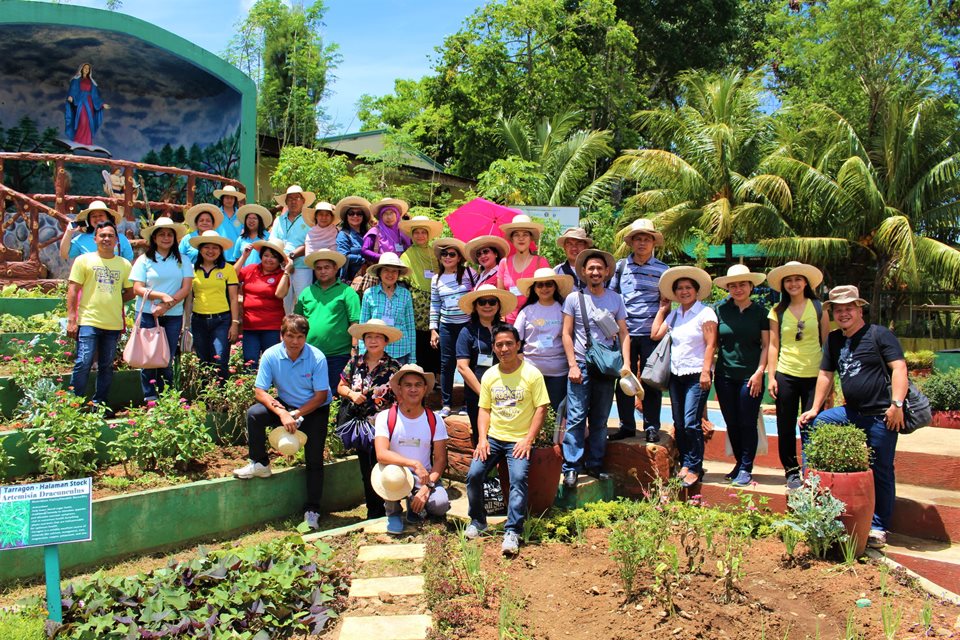Serving as a platform for exchanging knowledge, experiences, and success stories that shall strengthen the implementation of School-plus-home Garden Projects (S+HGP) in SEAMEO member-states, the four-day training gathered 26 school heads, principals, and teachers; representatives from provincial or district education ministries; participants from IIRR; and SEAMEO center representatives who also served as resource persons. They shall be the primary driving force in replicating viable school garden models in their respective localities or countries.
As a scaling-up strategy to ensure that lessons learned from the pilot stage of the project are picked up, implemented, and sustained in other schools in Southeast Asia, the training was designed to walk the participants through the basics of the SEARCA school-plus-home garden model, with focus on the step-by-step process of establishing locally-appropriate models in consideration of the unique context of the schools and communities where the project is to be implemented.
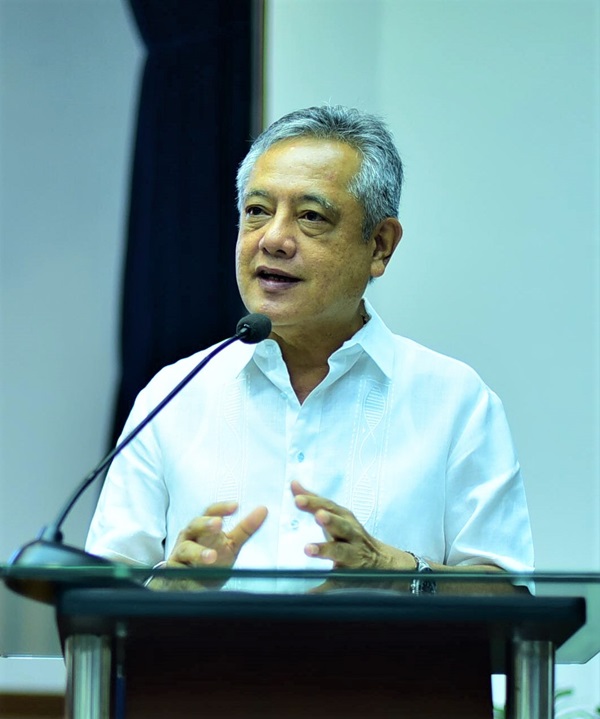 Held on the heels of the International Conference on School Gardens conducted on 16-17 April 2018, the training of trainers aimed to provide participants with a venue where they can discuss experiences, initiatives, and good practices on school-plus-home gardens in the Southeast Asian Region; explain key elements of food and nutrition, sustainable development goals, organic agriculture, agrobiodiversity, and edible landscaping for integration in the S+HGP; describe the process and requirements of designing, establishing, and maintaining edible organic school gardens; and prepare re-entry action plans for engaging and strengthening the capacity of teachers, parents, and local institutions to support, scale up, and disseminate information about school-plus-home gardens.
Held on the heels of the International Conference on School Gardens conducted on 16-17 April 2018, the training of trainers aimed to provide participants with a venue where they can discuss experiences, initiatives, and good practices on school-plus-home gardens in the Southeast Asian Region; explain key elements of food and nutrition, sustainable development goals, organic agriculture, agrobiodiversity, and edible landscaping for integration in the S+HGP; describe the process and requirements of designing, establishing, and maintaining edible organic school gardens; and prepare re-entry action plans for engaging and strengthening the capacity of teachers, parents, and local institutions to support, scale up, and disseminate information about school-plus-home gardens.
In his welcome remarks, SEARCA Director Dr. Gil C. Saguiguit, Jr. underscored the importance of spreading the idea of school gardens in addressing the nutrition, education, and economic well-being needs of school-age children, their families, and communities. He said that the "plus" in the project title highlights the drawing in of the active involvement of parents and communities, as well as the support of local government institutions and other relevant organizations to the project, especially in the context of ensuring proper nutrition of children, inspiring youth involvement in agriculture for food production, and addressing the aging farmer population in Southeast Asia.
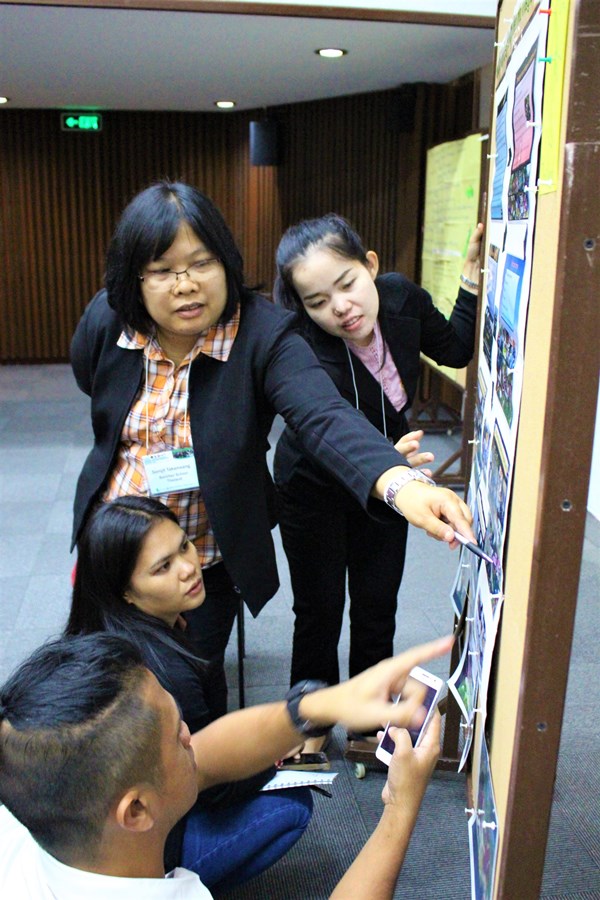 Dr. Blesilda M. Calub, SGHP Project Leader and University Researcher from the College of Agriculture and Food Science, University of the Philippines Los Baños, served as the technical coordinator and overall facilitator of the training of trainers with close guidance of and coordination with Dr. Bessie M. Burgos, SEARCA Program Head for Research and Development; and partners from IIRR and DepEd Division, Office of Laguna.
Dr. Blesilda M. Calub, SGHP Project Leader and University Researcher from the College of Agriculture and Food Science, University of the Philippines Los Baños, served as the technical coordinator and overall facilitator of the training of trainers with close guidance of and coordination with Dr. Bessie M. Burgos, SEARCA Program Head for Research and Development; and partners from IIRR and DepEd Division, Office of Laguna.
The training of trainers was organized into nine (9) modules. Module 1 involved sharing of Southeast Asian initiatives related to school and home gardens through an information marketplace. This is a workshop approach where participants prepared charts and displays to convey their experiences and insights on various aspects of implementing school gardens projects, then learned from each other. Module 2 consisted of learning visits to two (2) DepEd school-plus-home pilot garden sites in Majayjay Elementary School in Majayjay, Laguna and in Labuin Elementary School in Pila, Laguna; and to one (1) project-adopted school, the Bagumbayan Elementary School in Sta. Cruz, Laguna. The third module was composed of a series of lectures on school gardens for food and nutrition, including nutrition considerations as applied to the school garden program; nutrition planning and monitoring for school gardens; and bio-intensive garden standards for schools. Module 4 provided inputs on promoting sustainable development goals (SDGs), agrobiodiversity, and organic agriculture in Southeast Asia through school gardens, particularly regarding sustainable use of tropical biological resources in school gardens and organic agriculture's relevance to the SDGs.
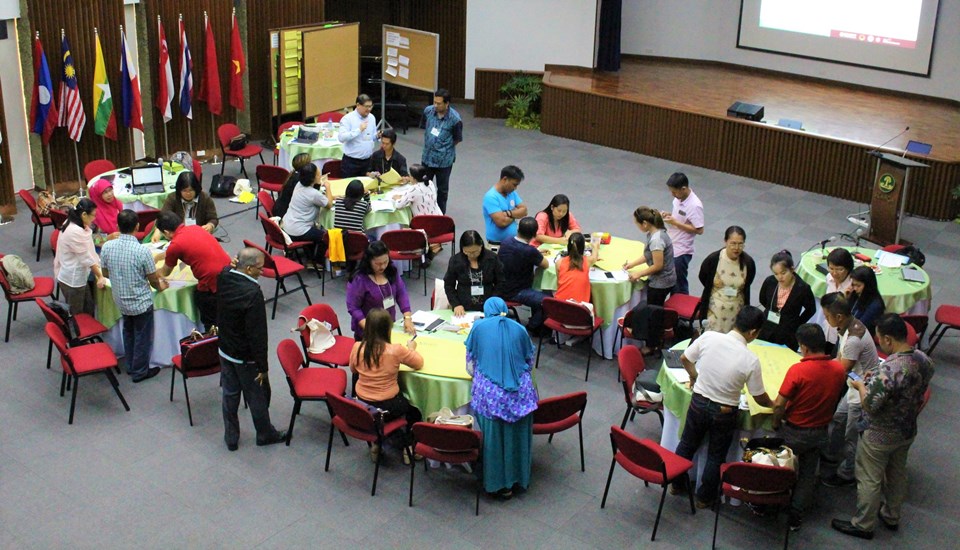
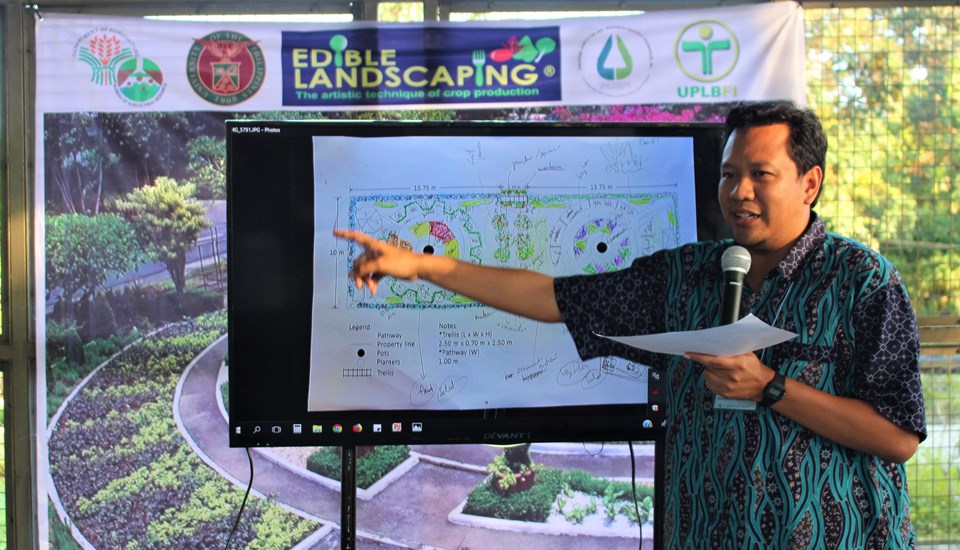
Meanwhile, Module 5 covered lectures on the use of school garden for education, including the utilization of school gardens as a science and mathematics education facility; experiences and examples of using school gardens to teach Science, Math, and English; and the basics of edible landscaping and garden planning. Topics on strengthening local institutional support, capacity building, and scaling up the School-plus-home Gardens Project, specifically experiences with the operationalization of the integrated school model of the IIRR and the SEARCA/UPLB/DepEd Laguna model, as well as stakeholder analysis and institutional diagramming, were tackled under Module 6. Module 7, meanwhile, was concerned with information dissemination and networking using an online platform and social media for S+HGP. Module 8 provided a background on the step-by-step process and lessons learned on establishing and sustaining school-plus-home gardens. Lastly, Module 9 involved the preparation, presentation, and refinement of Re-entry Action Plans by country groups. (Christian Ray Buendia)
